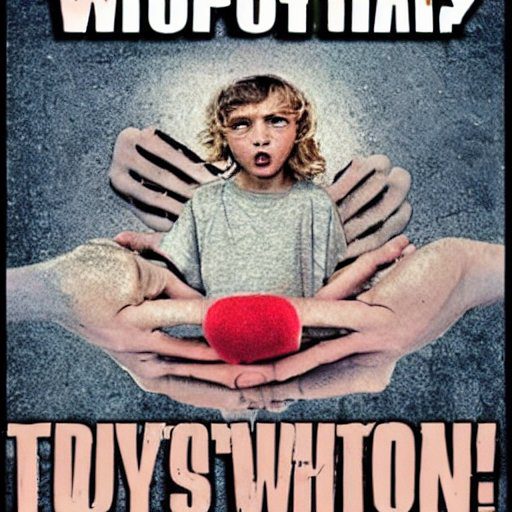Neurolinguistic Programming (NLP) is a psychological approach that originated in the 1970s, primarily developed by Richard Bandler and John Grinder. It posits that there is a connection between neurological processes, language, and behavioral patterns that have been learned through experience. NLP is often used in psychotherapy, personal development, and communication training. It employs techniques like […]
28 Cognitive Distortions
Sometimes our minds play tricks on us. They can convince us that untrue things are true, or vice versa. Cognitive distortions are bad mental habits. They’re patterns of thinking that tend to be negatively slanted, inaccurate, and often repetitive. These unhelpful ways of thinking can limit one’s ability to function and excel in the world. […]
Zimbardo’s Stanford Prison Experiment
The Stanford Prison Experiment is a seminal study in the field of social psychology, offering profound insights into the dynamics of power, authority, and human behavior. Conducted in 1971 by psychologist Philip Zimbardo, the experiment aimed to investigate the psychological effects of perceived power and authority within a simulated prison environment. Zimbardo’s Stanford Prison Experiment […]
Narcissism and Cluster B: Evil hiding in plain sight
When the most common psychological defense mechanism — denial — hardens into an outer shell so impenetrable as to be worn like armor, you have yourself a clinical narcissist. They may not — and probably will never — be diagnosed as members of a group of personality disorders known in psychology as Cluster B; but […]
What is dissociation?
Dissociation is a mental process that creates a disconnect between a person’s thoughts, memories, feelings, actions, or sense of who they are. It’s a normal phenomenon that most people have experienced. For example, daydreaming while driving and suddenly realizing you’ve reached your destination without consciously thinking about the journey is a mild form of dissociation. […]
Word salad
Word salad is a term used to describe disorganized speech that can occur in various mental health conditions, including some personality disorders like Narcissistic Personality Disorder (NPD). In the context of NPD, word salad may not be as severe or disorganized as it is in conditions like schizophrenia, but it can still be difficult to […]
Phobia Indoctrination
Phobia indoctrination is one of the principle ways a charismatic leader will lull potential followers into his thrall, by putting them into a state of perpetual fear and anxiety. They know, either instinctively or through training (or both), that people can be induced into a prolonged state of confusion easily, and that many people in […]
Cult Warning Signs: How to recognize cultish groups
Cults, in general, refer to organizations or groups that often manipulate and exploit members, typically by using unorthodox beliefs and practices. Recognizing cult warning signs can be vital in identifying and understanding the risk before getting involved with a high demand group that may not have your best interests in mind. Recognizing these warning signs […]
Stewart Rhodes, Oath Keepers founder, sentenced to 18 years for seditious conspiracy
Stewart Rhodes, the founder of the far-right Oath Keepers paramilitary group, has been sentenced to 18 years in prison for his role in a seditious conspiracy to disrupt the electoral count. It’s the harshest punishment so far resulting from the violent assault on the Capitol on January 6, 2021, and is especially significant because Rhodes […]
Tunnel Vision
Tunnel vision is both an actual physical condition, and a metaphor for a myopic type of thinking. In the former, people who experience tunnel vision have a loss of peripheral vision that results in a constricted, circular field of vision akin to looking through a tunnel. In the cognitive metaphor, tunnel vision refers to a […]
Fascist fathers are pissed
Old Boomers like Donald Trump and Charles Koch just copied their fascist fathers. Donnie inherited racism and eugenics from Old Fred, while Charlie was indoctrinated in the extremist delusions of the John Birch Society and the pseudoscience economics of the Austrian School acolytes. They are men with little imagination, who seek to exalt themselves by […]
Projection
Psychological projection is a defense mechanism that occurs when an individual unconsciously attributes their own feelings, thoughts, or attributes to another person. Projection is a way for people to cope with and protect themselves from unwanted or uncomfortable emotions such as guilt, anger, or anxiety. In essence, psychological projection involves transferring one’s own emotions, thoughts, […]
Negging
Negging is a manipulative tactic often used in the context of dating and interpersonal relationships. It involves making backhanded compliments or subtle insults aimed at undermining someone’s confidence and self-esteem. The term “negging” is derived from the word “negative,” and it is typically employed to make the target feel insecure or uncertain, causing them to […]
Propaganda
Propaganda is a form of communication that aims to influence people’s beliefs, attitudes, or behaviors towards a particular cause, idea, or ideology. It involves the use of persuasive influence techniques to shape public opinion and to create a favorable image of a person, group, or organization, while discrediting or demonizing its opponents. Propaganda can take […]
The Conservative Mind
A growing body of psychological and cognitive research is showing that the conservative mind has a few things in common. Some research suggests that conservatives may be more attuned to potential threats and have a stronger emotional response to them compared to liberals. For example, studies have found that conservatives tend to have greater physiological […]












